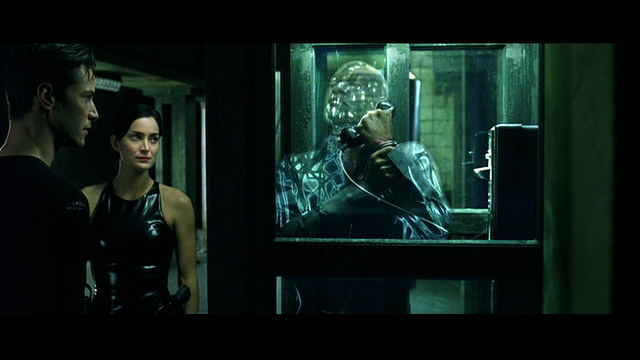
20 years have passed since the Matrix was released… hard to believe, I know. Even harder to accept, without feeling a little bit old, especially if you remember being a bright young thing when the movie hit the big screen, back in 1999. Sounds prehistoric? Well, you’re right, it kind of is.
The ideas in the movies however, are more relevant today than ever. The dystopian future in which artificial intelligence takes over humankind, could be one of the supercuts, but the movie itself abounds in symbolisms, referring to the greater, bigger, more meaningful themes of the 21st century and beyond. It is perhaps a new syntax of sci fi/ action movies, the perfect mix of special effects, narrative and style, underpinning philosophical themes. This whole mix is what makes the movie, much more than just a sci-fi, but a cult film, a classic of its genre.
When news about WhatsApp security breach broke, there was something in the way the hacking took place, that screamed to me: THE MATRIX. I’m getting a lot of that, lately.
Not sure if I was following the Aristotelian mimesis or the Oscar Wilde anti-mimesis, in my thought process, but one thing was for sure: there really was “a glitch in the system”.
Remember how Neo uses the phone to “exit” the Matrix? Well, WhatsApp hackers used the same principle, a phone call, only this time to “enter”.

In the words of Oscar Wilde or Lana del Rey’s gods and monsters song, I guess life really imitates art. I find this version to be more poetic than prophetic, so I’m sorry Aristotel, I’m taking the Del Rey — Wilde route, this time around.
Game of phones
Back to reality. Only last week, one of the largest communication apps, WhatsApp, amounting more than 1.5 billion users, was the target of an unprecedented hack, that revealed quite a vulnerability in its security system.
Even though, the app is popular for having end to end encryption on all messages going through its servers, hackers managed to enter the system via in-app voice calls. Basically, the users affected by the hack, got one or two calls from a number unknown to them, which delivered a code in the process of calling. Regardless if the user answered the call or not, the code was shipped.
Nothing a user could’ve done, short of not having the app altogether, could have prevented the infection. WhatsApp has since resolved the security breach and patched the flaw, while urging their users to update the app sooner rather than later.
However this particular security breach is very important from another aspect, that of the technology the hackers used. The hacking tool involved in the cyber attack is reportedly similar, if not identical, to the spyware and surveillance tools used by governments to capture high profile criminals and is often nearly impossible to track. As in this case, hackers could even erase records of the call used to inject the code, after the fact.
The alleged culprit? A company, known as the largest player in the business of surveillance tools, the Israeli cyber security company NSO Group is believed to be the developer of the tool. Even though the hacking tool gives a few cues and has the distinguishing marks of the type of surveillance tools developed by the company, NSO denies the allegations.
The target? Human Rights activists and apparently one lawyer in particular.
The motive? Let’s give a little more context. The alleged targeted lawyer, who spoke in condition of anonymity, is helping a Saudi dissident and several Mexican journalists build a civil case against the NSO. The NSO Group claims to only sell surveillance tools for legitimate targets, selling exclusively to law enforcement and intelligence agencies, but is suspected to do otherwise, in practice, targeting honest individuals and not high profile criminals or terrorists, being involved in illegal surveillance and thus violating human rights.
These are, in a nutshell, the facts so far of last week’s “Game of Phones” finale. But in real life.
Still, the case looks a lot more like Matrix to me. Am I taking it too far? I can’t tell.
Maybe I’m in too deep on this one, but the phone metaphor still echoes in my head. And no, I don’t suppose they’ll open a portal in spacetime any time soon through a phone call, but suffice to say they opened a very dense, resourceful and highly popular messaging app, in the meantime.
And so, could it be that these devices we so often use, be nothing more than pocket-sized surveillance devices we gladly accept?
Ok, that’s an oversimplification and I take that back, but the thought is worth to ponder upon, as it might lead to savvier users and a safer digital environment. As we arrive to a new age kicking and screaming all the way, we might even find our way to Zion. I somehow, take solace in that.
2019
Until Zion, let’s take it each step at a time and see how the 2019 digital world looks like.
In the sharing, internet economy, data is the currency and sometimes even a political weapon to be reckoned with. In other words, data is today an informational, political and economic asset capable of traveling the speed of light in a vacuum, when going through state of the art optical fibers. Able to operate at 99.7% the speed of light according to researchers at the University of Southampton in England. (source: Extreme Tech)
The digital world is now creating tangible value from big data so expect internet privacy to take an even more prominent route in the future. (Ain’t no going back)
Nowadays, security must come in layers, not only in the corporate environment, but on a personal level also.
The number one thing you need to get in line with is having a VPN connection. It’s really simple to use and just like that poof! your data travels through an encrypted tunnel, safe from prying eyes and encrypted all the while.
It won’t save you from all the threats out there, but it will make you less vulnerable.
